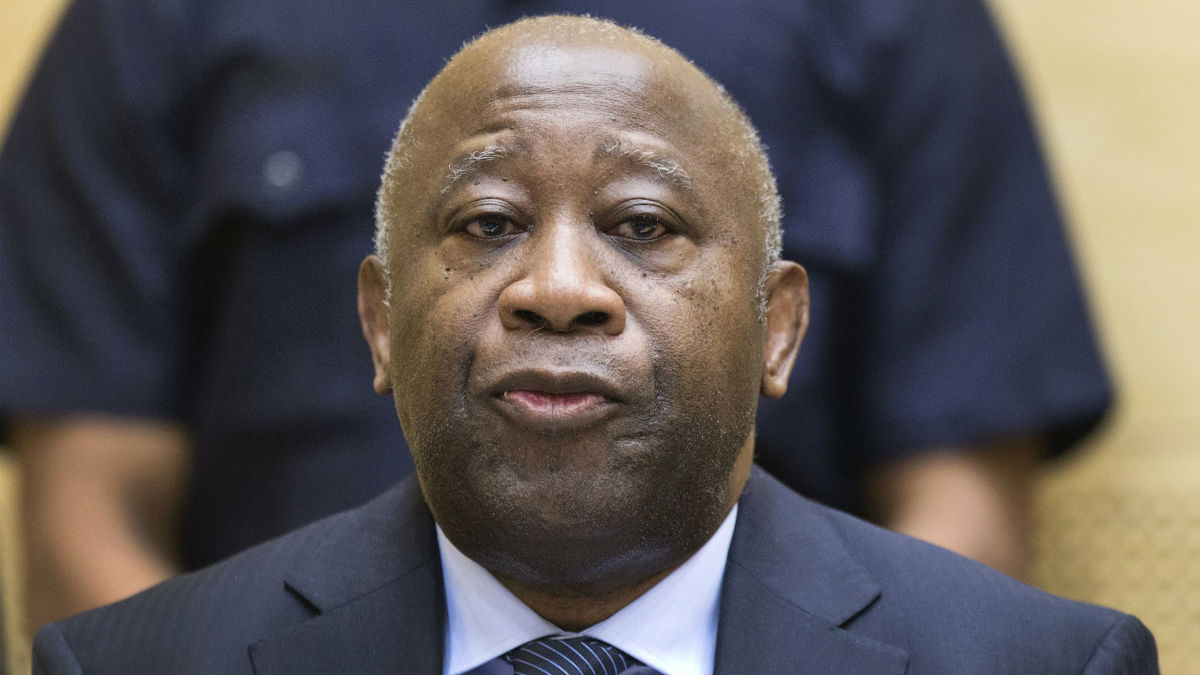Laurent Gbagbo trial: a case of victor's justice?
Former Ivory Coast leader goes before the International Criminal Court - but none of his opponents have been indicted

A free daily email with the biggest news stories of the day – and the best features from TheWeek.com
You are now subscribed
Your newsletter sign-up was successful
Laurent Gbagbo has become the first former head of state to stand trial at the International Criminal Court (ICC) in The Hague.
The ex-president of the Ivory Coast today pleaded not guilty to four charges of crimes against humanity connected to the wave of post-election violence that erupted in the country in 2010.
The hearing has been hailed as milestone in the search for justice, but human rights groups warn that not everyone is being brought to account.
The Week
Escape your echo chamber. Get the facts behind the news, plus analysis from multiple perspectives.

Sign up for The Week's Free Newsletters
From our morning news briefing to a weekly Good News Newsletter, get the best of The Week delivered directly to your inbox.
From our morning news briefing to a weekly Good News Newsletter, get the best of The Week delivered directly to your inbox.
Who is Gbagbo and why is he on trial?
The 70-year-old and his co-accused, former militia leader Charles Ble Goude, are charged with using the army, police and youth militia to commit murders, rapes and other "inhumane acts".
They deny all charges, with Gbagbo claiming he is the victim of an international plot to remove him from power. "All my life, I fought for democracy," he has told the court.
The charges relate to the violence that erupted when Gbagbo refused to stand down after losing the 2010 election to rival Alassane Ouattara.
A free daily email with the biggest news stories of the day – and the best features from TheWeek.com
The bloody conflict that followed, which lasted for four months and claimed more than 3,000 lives, was only brought to end when United Nations-backed troops stormed the presidential palace in the city of Abidjan in April 2011. Gbagbo was arrested and handed over to the ICC.
"Gbagbo is widely regarded as a leader who was willing to destroy his country by refusing to accept defeat at the ballot box," says the BBC.
Will justice be delivered?
Experts warn the trial is another case of victor's justice as none of Ouattara's supporters have been indicted.
"There is mounting evidence, collected by rights groups and independent investigators alike, that Ouattara's forces may have been responsible for some of the most egregious atrocities committed during the crisis," Jeffrey Smith writes for the human rights watchdog Freedom House.
Nevertheless, this may prove to be the most important trial in the history of the international court, says the BBC's Anna Holligan: "This high-profile trial will test the ability of the ICC to obtain reliable evidence from a country in which the government has a political interest in securing a guilty verdict.
"Can the suspects expect a fair trial if much of the evidence comes from their enemy?" she asks.
-
 Political cartoons for February 18
Political cartoons for February 18Cartoons Wednesday’s political cartoons include the DOW, human replacement, and more
-
 The best music tours to book in 2026
The best music tours to book in 2026The Week Recommends Must-see live shows to catch this year from Lily Allen to Florence + The Machine
-
 Gisèle Pelicot’s ‘extraordinarily courageous’ memoir is a ‘compelling’ read
Gisèle Pelicot’s ‘extraordinarily courageous’ memoir is a ‘compelling’ readIn the Spotlight A Hymn to Life is a ‘riveting’ account of Pelicot’s ordeal and a ‘rousing feminist manifesto’
-
 Epstein files topple law CEO, roil UK government
Epstein files topple law CEO, roil UK governmentSpeed Read Peter Mandelson, Britain’s former ambassador to the US, is caught up in the scandal
-
 Iran and US prepare to meet after skirmishes
Iran and US prepare to meet after skirmishesSpeed Read The incident comes amid heightened tensions in the Middle East
-
 Israel retrieves final hostage’s body from Gaza
Israel retrieves final hostage’s body from GazaSpeed Read The 24-year-old police officer was killed during the initial Hamas attack
-
 China’s Xi targets top general in growing purge
China’s Xi targets top general in growing purgeSpeed Read Zhang Youxia is being investigated over ‘grave violations’ of the law
-
 Panama and Canada are negotiating over a crucial copper mine
Panama and Canada are negotiating over a crucial copper mineIn the Spotlight Panama is set to make a final decision on the mine this summer
-
 Why Greenland’s natural resources are nearly impossible to mine
Why Greenland’s natural resources are nearly impossible to mineThe Explainer The country’s natural landscape makes the task extremely difficult
-
 Iran cuts internet as protests escalate
Iran cuts internet as protests escalateSpeed Reada Government buildings across the country have been set on fire
-
 US nabs ‘shadow’ tanker claimed by Russia
US nabs ‘shadow’ tanker claimed by RussiaSpeed Read The ship was one of two vessels seized by the US military